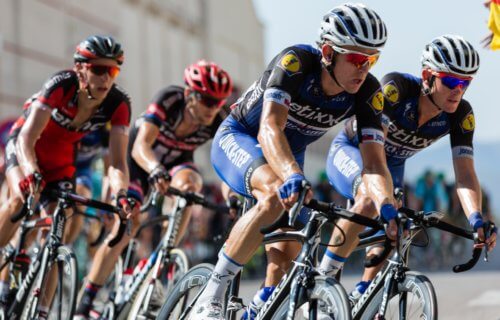GÖTTINGEN, Germany — From Alex Rodriguez to Lance Armstrong, there’s no shortage of world class athletes revealed to be using performance-enhancing substances. Now, a fascinating new study investigates the psychology behind how athletes who cheat navigate deceiving the public and sports leagues. Researchers from the University of Göttingen report that the moment a pro athlete decides to dabble in steroids and other similar substances it becomes “inevitable” that they’ll also start lying, omitting information, or at the very least, begin sculpting their own version of the truth.
For example, study authors say doping athletes will often portray themselves as the victims in these scandals. They’ll talk up how stringent drug testing policies are and play down the overall problem of doping in their respective sports.
The team analyzed various autobiographies of professional cyclists to reach these conclusions. All of the autobiographies examined were written before any of the cyclists had been caught doping. Of course, when it comes to famous cyclists caught bending the rules, there’s no bigger name than Lance Armstrong.
Armstrong, a former seven-time Tour de France winner, wrote two best-selling autobiographies in the early 2000s. Those books reached stores long before Armstrong was revealed to be doping, roughly 10 years later. The books however, portray the cyclist as 100 percent “clean” of performance-enhancing drugs.
“The main goal of this research is to identify the techniques of deceptive communication about doping – that is, typical communication strategies and statements that drug-users routinely employ to manipulate information and conceal doping,” says lead study author Dr. Marcel Reinold, Head of Sport and Health Sociology at the Institute of Sport and Exercise Sciences, in a university release.
The ‘cold of silence’ doesn’t always work
Prior research on how athletes deal with the weight of a doping secret discovered that most simply adhere to a “code of silence” and do their best to avoid the subject altogether when speaking or appearing publicly. This new work, however, suggests that cyclists in particular are under enormous pressure to speak openly about doping in their sport. In other words, staying silent just won’t cut it. So, pro cyclists instead must get more creative by talking up how their sport has become “strictly controlled” and “drug-free.” The idea is to create a perception that they have no logical reason to use performance-enhancing substances.
“The aim is clearly to convince the public that everything about the cyclist concerned is indeed honest and open,” Dr. Reinold concludes. “These techniques help deceivers to present themselves as compliant with the anti-doping system and also to appear credible in their commitment against drugs. Furthermore, it helps to allay suspicion, prevent others discovering the lies and generally control the flow of incriminating information in such a way that prevents leaks or detection.”
The findings appear in the European Journal for Sport and Society.
